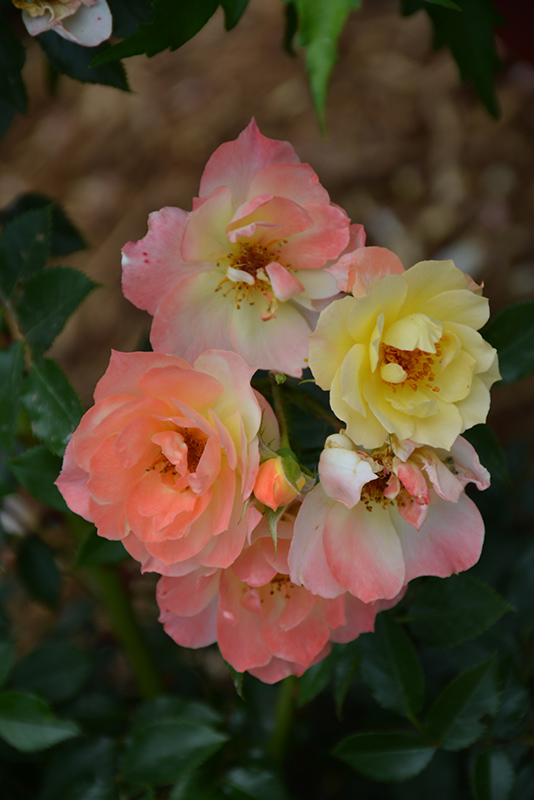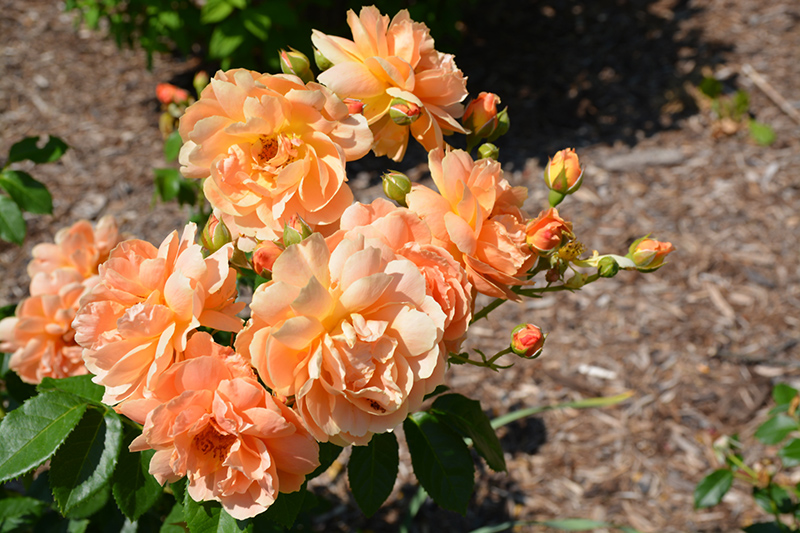Height: 3 feet
Spread: 3 feet
Sunlight:
![]()
Hardiness Zone: 5a
Group/Class: Shrub Rose
Brand: Meilland Roses
Description:
Lavish clusters of buds open yellow and mature to pink as the flower ages; deep green foliage on a compact bushy habit has excellent disease resistance; consistent reblooming from summer into fall; great cut flower quality
Ornamental Features
Color Cocktail™ Rose features showy fragrant yellow flowers with peach overtones, gold eyes and creamy white centers at the ends of the branches from late spring to mid fall. The flowers are excellent for cutting. It has forest green deciduous foliage. The glossy oval compound leaves do not develop any appreciable fall color.
Landscape Attributes
Color Cocktail™ Rose is a multi-stemmed deciduous shrub with an upright spreading habit of growth. Its average texture blends into the landscape, but can be balanced by one or two finer or coarser trees or shrubs for an effective composition.
This shrub will require occasional maintenance and upkeep, and is best pruned in late winter once the threat of extreme cold has passed. It is a good choice for attracting bees, butterflies and hummingbirds to your yard. Gardeners should be aware of the following characteristic(s) that may warrant special consideration;
- Spiny
Color Cocktail™ Rose is recommended for the following landscape applications;
- Mass Planting
- Hedges/Screening
- General Garden Use
Planting & Growing
Color Cocktail™ Rose will grow to be about 3 feet tall at maturity, with a spread of 3 feet. It tends to fill out right to the ground and therefore doesn't necessarily require facer plants in front. It grows at a fast rate, and under ideal conditions can be expected to live for approximately 30 years.
This shrub should only be grown in full sunlight. It does best in average to evenly moist conditions, but will not tolerate standing water. To help this plant achive its best flowering performance, periodically apply a flower-boosting fertilizer from early spring through into the active growing season. It is not particular as to soil type or pH. It is highly tolerant of urban pollution and will even thrive in inner city environments. This particular variety is an interspecific hybrid.

